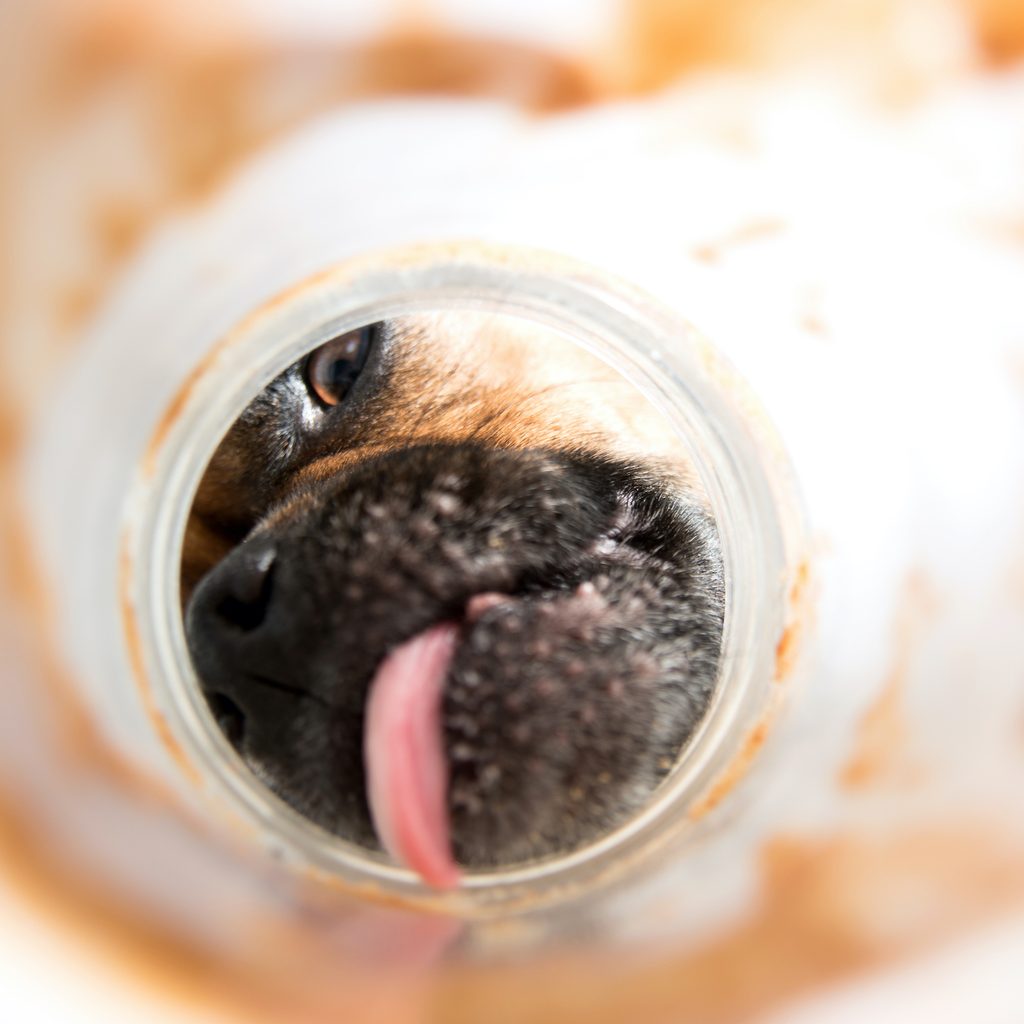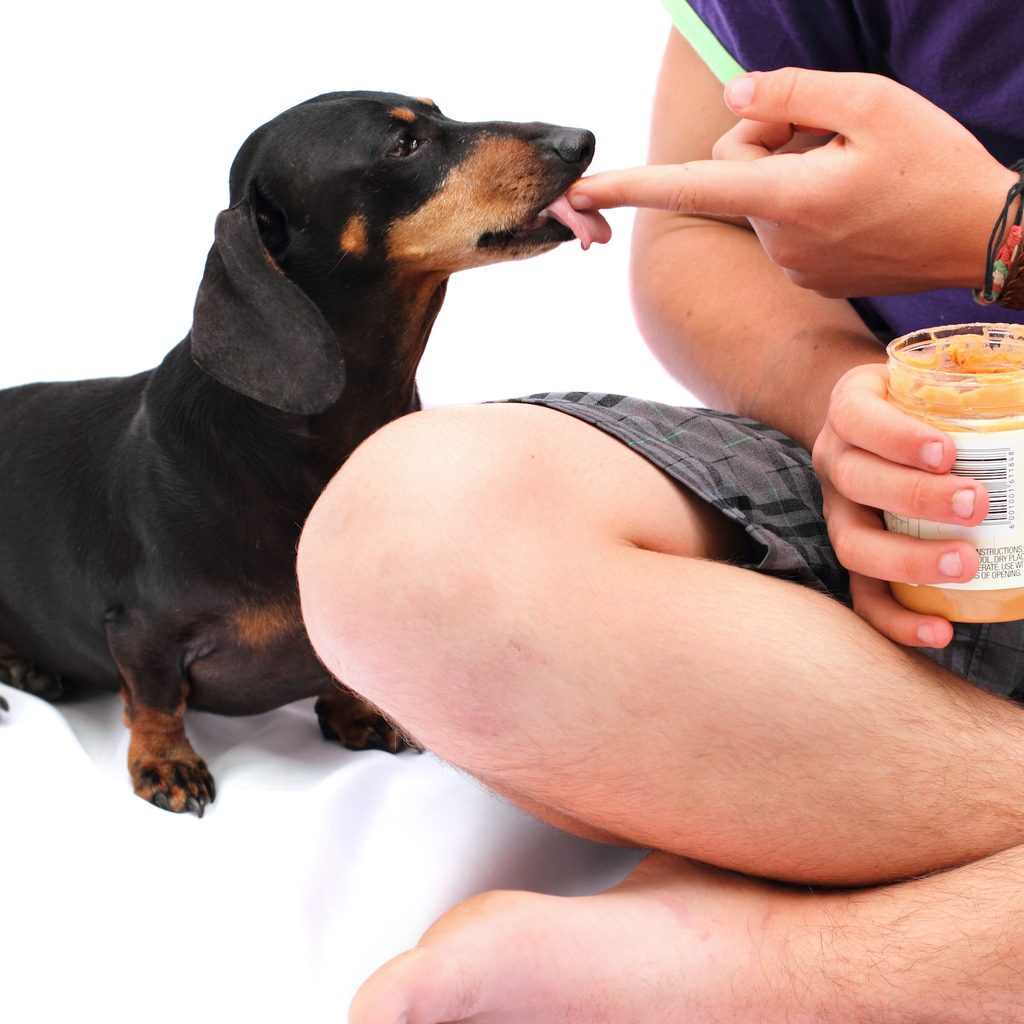Dogs and peanut butter go together like rabbits and carrots — it just works. The other nut butters, though, haven’t been as popular as a snack for pets, and some nuts are toxic to dogs, so it can’t help but leave us wondering: Can dogs eat almonds and almond butter?
A quick internet search will give you a wide range of answers to this question, but how do you know who to trust? We’ve done the hard work for you by gathering information from canine and veterinary experts, so read on to learn everything you need to know about dogs and almonds. Now you’ll know exactly what to do next time your fur baby eyes your breakfast.
So, what’s your guess? Can dogs eat almonds?
Are almonds bad for dogs?
If you enjoy a handful of almonds as a snack, it’s best not to share it with your dog. While these nuts have not proven to be any more toxic to pets than to humans, according to Walkerville Vet, they do pose a number of risks that outweigh the positives. To be clear — we are talking about sweet almonds that are sold for human consumption, not bitter almonds, which are more often used in herbal supplements. Bitter almonds contain harmful levels of cyanide and pose a much more immediate threat to your dog’s health if consumed (via Walkerville Vet). Luckily, their bitter taste deters most animals from eating them.
As for sweet almonds, the most immediate concern is choking or intestinal obstruction. The American Kennel Club explains that even though small breeds are more at risk for these complications, it can happen to any dog. If the windpipe, esophagus, or intestines become blocked, your dog will need immediate veterinary attention. Allergies can also be an emergency, but this won’t be an issue for most dogs.
Almonds — and all other nuts — are also higher in fat than what’s ideal for dogs (via Rau Animal Hospital). This can result in a number of gastrointestinal issues including vomiting, diarrhea, and pancreatitis. Pancreatitis in canines can be life-threatening if not treated, so think of this as one more reason to avoid high-fat foods for your pup.
You should also be especially wary of almonds that have been seasoned. Fluid retention can become a problem if your dog consumes a large amount of salt, but as Walkerville Vet notes, you don’t need to worry if your dog has eaten only one or two almonds. Other flavorings, like garlic and onion, can be downright toxic to canines.

Is almond butter safe for dogs?
Just like their parent nut, almond butter has mixed reviews among veterinarians. For example, Rau Animal Hospital does not advise against the occasional taste of almond butter for most dogs, while Hill’s Pet encourages giving your pup peanut butter instead.
Even so, almond butter can be easier to digest than complete almonds, notes Hill’s Pet, so your dog might not experience as much stomach upset. This can be a relief at the moment, but can also encourage your pup to eat more almond butter than they should. This is just one reason why pancreatitis is just as big a concern — if not bigger — when nuts are processed into butter.
One sneaky ingredient that hides in some nut butters can also be fatal to dogs. Xylitol, which is also marketed as birch sugar, is an artificial sweetener found in many low-calorie and no-sugar products (via Rau Animal Hospital). Even a small amount can be fatal, especially to small dogs, so make sure to triple-check any labels if your dog does get into almond butter.

What happens if my dog eats almonds?
If your dog snacks on some almonds, you don’t need to panic. When it comes to pancreatitis, your dog would need to consume a large number of nuts to make it an immediate concern. Still, you should keep a watchful eye on your pet in case of allergy, obstruction, or other harmful ingredients.
If you notice signs of gastrointestinal distress (vomiting, diarrhea, constipation, and even behavior changes), or if your dog has consumed any harmful additives or large amounts of almonds, you can contact an emergency veterinarian or pet poison control helpline to find out how to help. In most situations, though, dogs will be absolutely fine.
How many almonds will hurt a dog?
As mentioned above, it will take a large number of almonds or almond butter for a dog to become seriously ill. Of course, the exact number is nearly impossible to calculate, but a good rule to follow is the bigger the dog, the bigger amount needed to cause major harm. Still, it takes only one almond to cause windpipe or intestinal blockage, so you should always be vigilant when your dog is around non-approved human foods.
Now that you’re equipped with all the do’s and don’ts of almonds, you can make the best decisions for your pet. Although a bit of almond butter will likely not make your dog sick, we highly recommend erring on the side of caution and giving your dog a different snack instead. Many pet experts agree!




